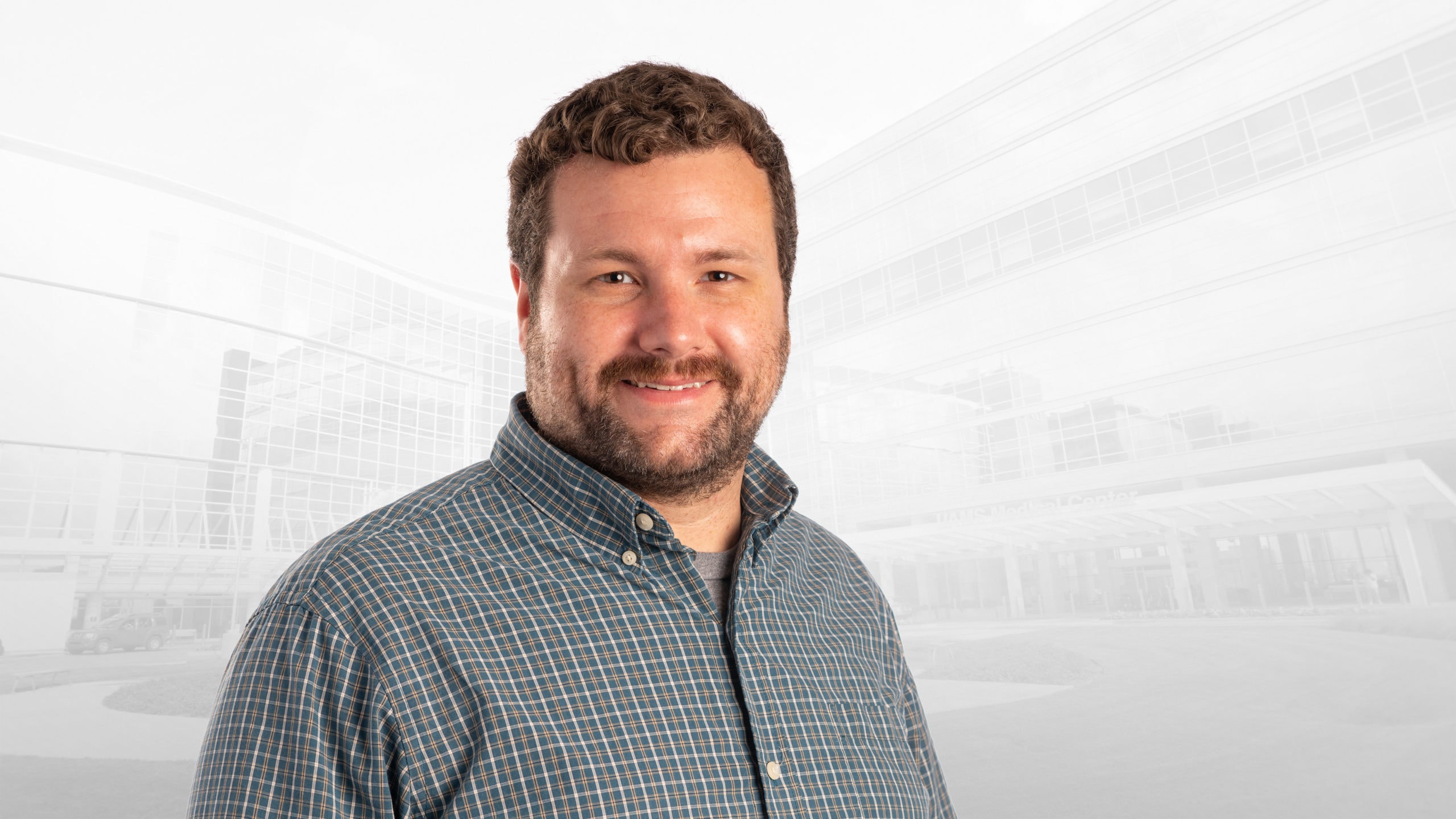View Larger Image

Mitchell McGill, Ph.D., appointed to National Committee at C-Path.
Image by Bryan Clifton
UAMS Researcher Mitchell McGill, Ph.D., Appointed to National Committee at the Critical Path Institute
| LITTLE ROCK — Mitchell McGill, Ph.D., a researcher at the University of Arkansas for Medical Sciences (UAMS), recently became the first in Arkansas appointed to the Hepatotoxicity Working Group at the Critical Path Institute (C-Path).
Established in 2005, C-Path is a nonprofit, public-private partnership with the U.S. Food and Drug Administration (FDA). The purpose of the organization is to bring together pharmaceutical companies, the FDA, researchers and other major stakeholders to improve drug development by creating standards and tools to guide evaluation of the safety and effectiveness of new drugs before they reach the market.
McGill, assistant professor in the Fay W. Boozman College of Public Health Environmental and Occupational Health Department, was appointed as a collaborative member because of his expertise and research in liver injury biomarkers.
“The goal of the Hepatoxicity Working Group is to develop and promote guidelines and tools intended to detect and avoid drug-induced liver injury (DILI), during drug development, before it can hurt the public,” said McGill. “It’s an honor to be elected to this prestigious group and to take on this important problem.”
DILI is a rare event that typically occurs in one in 1,000 to one in 10,000 people who use a DILI-causing drug.
“If only one or two people participating in a clinical trial develop signs of DILI, it’s difficult to know if it’s actually due to the drug or caused by some other factor in their lives. As a result, DILI-causing drugs reach the consumer market too frequently,” said McGill.
DILI is often only detected after a drug is approved and tens or hundreds of thousands of patients begin taking it. For most drugs, there is no way for clinicians to predict which of their patients will be adversely affected.
“Suddenly, you have people becoming very sick or even dying from taking a drug that was supposed to help them,” said McGill.
DILI is one of the most common reasons for black box warnings on drugs and the single most common reason for withdrawal of drugs from the market.
“Mitch’s appointment has a very big impact on public health. Development of novel predictive tools to prevent DILI in the general public is an urgent need,” said Igor Koturbash, M.D., Ph.D.,
associate professor and chair of the Environmental and Occupational Health Department in the College of Public Health. “This appointment is a reflection of his expertise and growing renown in the field of drug-induced liver injury.”
UAMS is the state’s only health sciences university, with colleges of Medicine, Nursing, Pharmacy, Health Professions and Public Health; a graduate school; a hospital; a main campus in Little Rock; a Northwest Arkansas regional campus in Fayetteville; a statewide network of regional campuses; and eight institutes: the Winthrop P. Rockefeller Cancer Institute, Jackson T. Stephens Spine & Neurosciences Institute, Harvey & Bernice Jones Eye Institute, Psychiatric Research Institute, Donald W. Reynolds Institute on Aging, Translational Research Institute, Institute for Digital Health & Innovation and the Institute for Community Health Innovation. UAMS includes UAMS Health, a statewide health system that encompasses all of UAMS’ clinical enterprise. UAMS is the only adult Level 1 trauma center in the state. UAMS has 3,485 students, 915 medical residents and fellows, and seven dental residents. It is the state’s largest public employer with more than 11,000 employees, including 1,200 physicians who provide care to patients at UAMS, its regional campuses, Arkansas Children’s, the VA Medical Center and Baptist Health. Visit www.uams.edu or uamshealth.com. Find us on Facebook, X (formerly Twitter), YouTube or Instagram.###